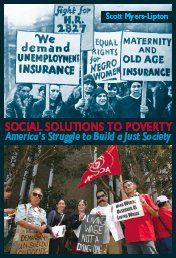GCCW Campaign Letter to Sen. Landrieu, Feb. 24, 2010
The Honorable Mary Landrieu
328 Hart Senate Building
United States Senate
Washington, DC 20510
Dear Senator Landrieu:
- Millions of residents vulnerable to internal displacement or mass relocation due to future deadly storms, coastal land loss, and climate change;
- Homeowners insurance costs sky-rocketing in coastal communities;
- Homelessness and rental housing costs rising as affordable housing projects grinding to a halt with the crash of financial markets and thousands of blighted and storm-damaged properties remaining unrepaired; and
- Too many families unable to access proper training and living wage work to pay for life’s necessities and find pathways out of poverty.
- Creating jobs restoring natural flood protection, including wetlands and barrier islands;
- Retrofitting homes to withstand flooding and winds and promoting energy efficiency to bring down energy and homeowners insurance costs for low income families;
- Helping families immediately threatened by coastal flooding to relocate voluntarily;
- Promoting community economic development and affordable housing, including repairing or rebuilding blighted, storm-damaged properties;
- Creating supportive housing for the chronically homeless and residents with disabilities;
- Training local workers for high demand, high wage skilled trades work, including cutting edge green building, coastal restoration and disaster mitigation technologies;
- Promoting local business development in cutting-edge green industries; and
- Helping local small businesses obtain Surety Bonds to compete for federal contracts.
We urge you to support attaching a request to reallocate these funds in either the Jobs Bill now being debated in Congress, other upcoming supplemental appropriations legislation, or the FY 11 Appropriations Process. Such a plan would allow the Administration and the U.S. Congress to fulfill their campaign promises of building stronger, safer and more equitable communities across America’s Gulf Coast without increasing the national deficit. Together, we can work to put in place policies to ensure that we rebuild more resilient and equitable neighborhoods, restore the environment, and empower our brothers and sisters to lift themselves from poverty and overcome devastation.
Executive Director, Steps Coalition
Program Officer, The Twenty-First Century Foundation
Director, Benroe Housing Initiatives
Director, TRAC
Assistant Administrator, 232-HELP/Louisiana 211
Executive Director, All Congregations Together (ACT)
Executive Director, Bayou Interfaith Shared Community Organizing (BISCO)
Director, Louisiana Office
Children’s Defense Fund
Director, Disciples Justice Action Network (Disciples of Christ)
Executive Director, National Alliances of Vietnamese American Service
Co-Founder, Gulf Coast Civic Works Project
President, Equal Justice Society
Executive Director, Immaculate Heart Community Development Corp
Director, Desire Street Ministries/CDC 58:12 Inc.
Executive Director, Dando la Mano
Institute of Women & Ethnic Studies (IWES)
United Church of Christ, Justice and Witness Ministries
Washington Office
Bill Stallworth
Executive Director, Hope CDA: Hope Community Development Agency
National Director
Office for Interfaith & Community Alliances
Islamic Society of North America
CEO, Clergy Strategic Alliances, LLC
Executive Director, Global Mission Partnerships
Church of the Brethren
National Chair, National Congress of Black Women, Inc.
Director, Rural Training and Research Center
Federation of Southern Cooperatives

